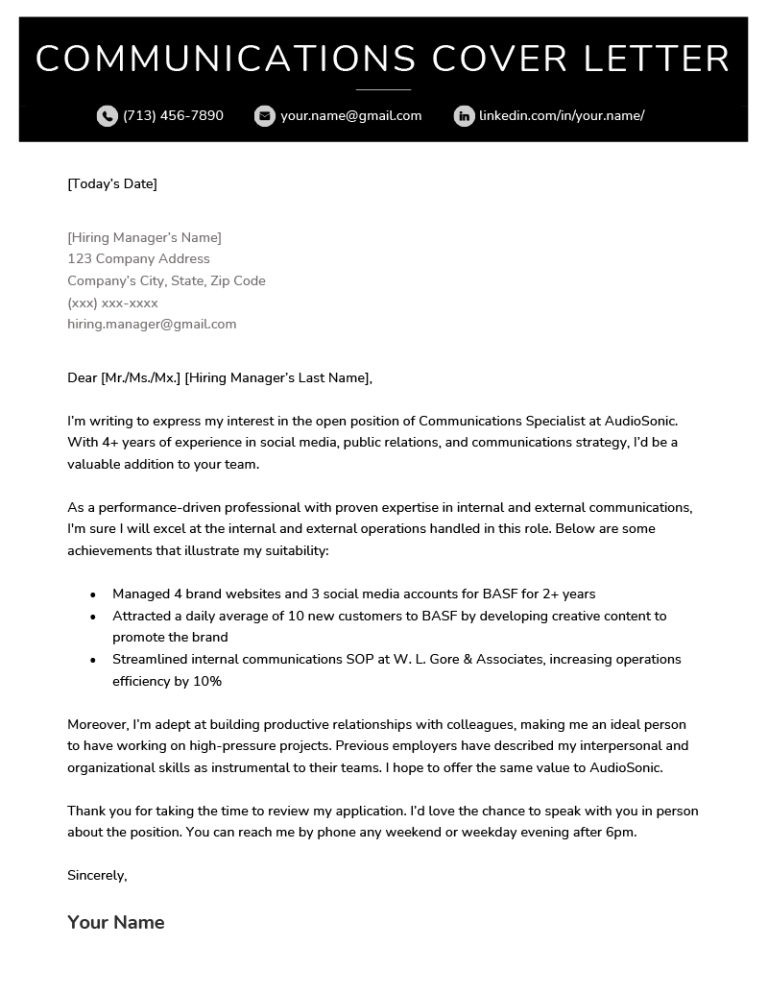Leadership Training for Middle Managers
Leadership training for middle managers helps develop essential skills and strategies to effectively lead and manage teams, drive results, and facilitate organizational growth. With comprehensive leadership training, middle managers gain the tools and knowledge necessary to inspire, motivate, and guide their teams, leading to increased productivity and overall success for the organization.
In today’s competitive business world, investing in leadership training for middle managers is crucial for organizations looking to stay ahead and empower their teams to achieve their full potential.
Developing Essential Leadership Skills
This middle manager leadership training focuses on developing essential leadership skills through effective training and practical strategies. Sharpen your leadership abilities to drive success and inspire your team. Start your journey towards becoming an impactful leader today.
Effective Communication
- Effective communication is a crucial skill for middle managers as it enables them to convey their thoughts and ideas clearly to their team and superiors.
- It involves active listening and using appropriate verbal and non-verbal cues to ensure understanding.
- Middle managers should strive to build positive relationships with their team members through open and transparent communication.
- They should also be able to deliver constructive feedback and address any concerns or conflicts that may arise.
- Effective communication fosters trust, collaboration, and productivity within the team.
Decision-Making And Problem-Solving
- Middle managers play a vital role in decision-making and problem-solving within their department or team.
- They need to be able to gather relevant information, analyze it, and make sound decisions based on the available facts and data.
- Middle managers should involve their team members in the decision-making process whenever possible to encourage their participation and ownership.
- They should also have strong problem-solving skills to identify and address issues effectively.
- Decision-making and problem-solving skills enable middle managers to adapt to changing circumstances and lead their team towards achieving organizational goals.
Conflict Resolution
- Conflict is inevitable within any organization, and middle managers often find themselves in the middle of disputes between team members or departments.
- They need to possess effective conflict resolution skills to manage conflicts and maintain positive working relationships.
- Middle managers should be able to identify the root cause of conflicts and mediate between the involved parties.
- They should encourage open communication, actively listen to all sides, and seek win-win solutions.
- Conflict resolution skills help middle managers foster a harmonious work environment and prevent disruptions to productivity and morale.
Empathy And Emotional Intelligence
- Empathy and emotional intelligence are increasingly recognized as essential leadership skills for middle managers.
- Being able to understand and relate to the emotions and experiences of their team members allows middle managers to build strong relationships and create a supportive work culture.
- Middle managers should actively practice empathy by listening empathetically, showing understanding, and providing emotional support when needed.
- Emotional intelligence enables middle managers to regulate their own emotions and respond to others’ emotions with empathy and understanding.
- Cultivating empathy and emotional intelligence in middle managers contributes to higher employee engagement, job satisfaction, and overall team success.
Building Effective Teams
Leadership training for middle managers is crucial for building effective teams. This program equips managers with the skills needed to foster collaboration, enhance communication, and drive productivity, resulting in high-performing teams that achieve exceptional results.
Building effective teams is crucial for middle managers to achieve their goals and drive success within their department or organization. By creating a positive team culture, assigning tasks and delegating responsibilities, providing feedback and recognition, and fostering collaboration and cooperation, middle managers can build teams that are productive, motivated, and engaged.
Creating A Positive Team Culture:
- Encourage open communication to foster trust and transparency within the team.
- Promote a respectful and inclusive environment where everyone’s ideas and opinions are valued.
- Set clear expectations and goals to align the team’s efforts and facilitate cooperation.
- Promote a sense of unity and shared purpose to motivate team members.
Assigning Tasks And Delegating Responsibilities:
- Identify team members’ strengths and skills to allocate tasks effectively.
- Clearly define expectations and deadlines for each task.
- Delegate responsibilities based on individual expertise and development opportunities.
- Establish a system for tracking progress and providing guidance when needed.
Providing Feedback And Recognition:
- Regularly provide constructive feedback to help team members improve their performance.
- Recognize and appreciate team members’ hard work and achievements.
- Offer opportunities for professional growth and development.
- Foster a culture of continuous improvement through feedback and learning.
Fostering Collaboration And Cooperation:
- Encourage teamwork and cooperation by promoting a shared vision and goals.
- Facilitate cross-functional collaboration to leverage diverse skills and perspectives.
- Establish effective channels for communication and information sharing.
- Encourage mentoring and knowledge sharing among team members.
By focusing on building effective teams through creating a positive team culture, assigning tasks and delegating responsibilities, providing feedback and recognition, and fostering collaboration and cooperation, middle managers can enhance their leadership skills and create high-performing teams that drive organizational success.
Leading Through Change And Challenges
Middle managers can navigate change and overcome challenges with our leadership training program. Gain the skills to lead effectively, adapt to shifting circumstances, and drive success in your organization.
Adapting To Change And Managing Uncertainty:
- Middle managers play a crucial role in leading their teams through periods of change and uncertainty. Here are some strategies they can employ:
- Foster open communication: Encourage regular and transparent communication with team members to keep them informed about changes and address any uncertainties.
- Embrace flexibility: Middle managers should be adaptable and encourage their teams to embrace change. Help employees understand the importance of being open to new ideas and ways of working.
- Provide support and resources: Offer the necessary training and resources to help employees navigate through changes effectively. This can include additional training programs, coaching, or access to relevant tools and technologies.
- Encourage feedback: Create a culture that promotes feedback and encourages team members to share their concerns or suggestions during times of change. Actively listen and respond to their feedback to instill a sense of ownership.
Leading During Times Of Crisis:
- Middle managers are instrumental in providing stability and guidance during times of crisis. Here are some ways they can effectively lead their teams:
- Demonstrate empathy and compassion: Show understanding towards team members who may be experiencing heightened stress or anxiety. Be approachable and available if anyone needs to discuss their concerns.
- Provide clear communication: During a crisis, it is essential to communicate clearly and concisely. Ensure that information regarding the crisis, its impact, and any necessary changes are consistently conveyed to the team.
- Lead by example: Middle managers should exhibit calmness and resilience, even in the face of adversity. Show your team that you are confident in navigating through the crisis and encourage them to do the same.
- Offer support and resources: Be proactive in identifying and providing the necessary support systems to help employees cope with the crisis. This may include access to mental health resources, flexible work arrangements, or additional training.
Overcoming Resistance And Managing Conflict:
- In any leadership role, addressing resistance and managing conflict is inevitable. Here are some strategies for middle managers to overcome resistance and manage conflict effectively:
- Understand the underlying reasons: Take the time to understand the root causes of resistance or conflict. It could be due to fear, lack of information, or differences in perspectives. Addressing these underlying reasons can lead to resolution.
- Foster a positive work environment: Create an inclusive and collaborative work environment where open dialogue and diverse opinions are encouraged. This can reduce the likelihood of conflicts arising and encourage proactive resolutions.
- Employ active listening: Actively listen to the concerns and viewpoints of all parties involved in the conflict. Demonstrate empathy and seek consensus by finding common ground and incorporating different perspectives.
- Mediate and facilitate discussions: Middle managers can act as mediators, facilitating discussions between conflicting parties. Encourage constructive conversations and guide them towards finding mutually beneficial solutions.
Motivating And Inspiring Teams:
- Middle managers hold the key to motivating and inspiring their teams. Here are some ways to keep teams engaged and driven towards success:
- Set clear goals and expectations: Clearly define goals and expectations for both individual team members and the team as a whole. This provides clarity and direction, ensuring everyone is working towards a shared purpose.
- Recognize and appreciate achievements: Acknowledge and celebrate the accomplishments of your team members. Recognizing their efforts boosts morale and encourages further motivation.
- Provide developmental opportunities: Offer training and development opportunities to help team members enhance their skills and grow professionally. This shows that you are invested in their success.
- Foster a positive work culture: Maintain a positive work environment by encouraging teamwork, collaboration, and open communication. Promote a culture that values creativity, innovation, and continuous learning.
Remember, middle managers play a vital role in leading through change and challenges. By adapting to change, leading during crises, overcoming resistance, and motivating teams, they can create a positive and productive work environment that drives success.
Increased Employee Engagement And Job Satisfaction
Increase employee engagement and job satisfaction through effective leadership training for middle managers. Empower your team, foster a positive work environment, and drive productivity with tailored programs that bring out the best in your leaders.
Empowering Employees And Fostering Trust
- Trust is the foundation of a successful workplace. When middle managers undergo leadership training, they learn to empower their employees and foster a culture of trust. This leads to increased employee engagement and job satisfaction. Here’s how leadership training can help empower employees and foster trust:
- Delegation: Middle managers learn how to effectively delegate tasks and responsibilities to their team members. This gives employees a sense of ownership and responsibility, empowering them to take on new challenges and make decisions.
- Open communication: Leadership training emphasizes the importance of open and honest communication. Managers learn how to actively listen to their employees’ concerns and ideas, creating an environment where everyone feels heard and valued.
- Support and encouragement: Through training, middle managers discover the significance of supporting and encouraging their team members. By acknowledging their efforts and providing constructive feedback, managers inspire trust and motivate employees to perform at their best.
- Autonomy and decision-making: Leadership training teaches managers to give their employees the autonomy to make decisions within their role. This not only empowers employees but also fosters trust, as they feel confident in their abilities and are trusted to make important choices.
Enhancing Work-Life Balance And Well-Being
- Work-life balance and employee well-being are crucial for job satisfaction. Leadership training for middle managers can play a vital role in enhancing these aspects. Here’s how:
- Flexible work arrangements: Middle managers learn about the importance of offering flexible work arrangements, such as remote work options and flexible working hours. This enables employees to better manage their personal and professional lives, leading to increased job satisfaction.
- Stress management techniques: Leadership training explores stress management techniques that middle managers can apply to support their team members. By promoting a healthy work environment and providing resources for stress reduction, managers contribute to improved well-being and job satisfaction.
- Encouraging self-care: Training helps managers understand the importance of promoting self-care among their employees. Encouraging breaks, promoting physical activity, and supporting mental health initiatives can significantly enhance work-life balance and overall well-being.
- Equal workload distribution: Middle managers are trained to assess workloads and ensure fair distribution among team members. By avoiding overburdening individuals and promoting a balanced workload, managers can contribute to a healthier work-life balance and increased job satisfaction.
Recognizing And Rewarding Achievements
- Recognizing and rewarding achievements can have a significant impact on employee engagement and job satisfaction. Leadership training equips middle managers with the skills to effectively acknowledge and celebrate accomplishments. Here are some strategies:
- Frequent feedback: Middle managers learn the importance of providing regular feedback to their team members. Recognizing achievements and offering constructive criticism helps employees feel valued and motivated in their roles.
- Public acknowledgment: Training emphasizes the power of public acknowledgment. Middle managers are encouraged to publicly recognize employees’ achievements, whether it’s through team meetings, emails, or company-wide announcements. This boosts employee morale and fosters a positive work environment.
- Rewards and incentives: Leadership training equips managers with the knowledge to implement rewards and incentive programs. By offering tangible rewards or incentives such as bonuses, extra time off, or professional development opportunities, managers can show appreciation for their employees’ hard work and dedication.
- Career advancement opportunities: Middle managers are trained to identify and provide career advancement opportunities for their team members. Offering promotions, additional responsibilities, or specialized training demonstrates recognition and creates a pathway for employee growth and job satisfaction.
Creating Opportunities For Growth And Development
- Providing opportunities for growth and development is essential for employee engagement and job satisfaction. Leadership training for middle managers focuses on nurturing employees’ potential and helping them reach their career goals. Here’s how they can create these opportunities:
- Personalized development plans: Training teaches middle managers how to create personalized development plans for their employees. By identifying strengths, weaknesses, and career aspirations, managers can tailor training, mentoring, and coaching programs to foster growth.
- Skill-building initiatives: Leadership training emphasizes the importance of skill-building initiatives within teams. Managers are encouraged to identify areas where employees can enhance their skills, offering training workshops, seminars, or relevant projects to facilitate growth.
- Mentoring and coaching: Middle managers gain insights into the benefits of mentoring and coaching relationships. By pairing experienced employees with mentees and providing coaching opportunities, managers create a supportive environment conducive to learning and development.
- Cross-functional projects: Leadership training highlights the value of cross-functional projects. Middle managers learn how to assign employees to projects outside their usual scope, fostering new skills, and broadening their professional horizons.
Remember, leadership training for middle managers not only benefits the individuals themselves but also creates a positive impact on employee engagement, job satisfaction, and overall organizational success.
Improved Performance And Productivity
Our Leadership Training for Middle Managers is designed to enhance performance and productivity, enabling middle managers to become effective leaders in their organizations. With specialized training and valuable insights, participants can develop key skills that drive success and growth in their roles.
Middle managers play a critical role in driving the success of an organization. Investing in leadership training for middle managers can significantly enhance their performance and productivity, leading to overall improved outcomes. Here are some key areas that can be targeted in leadership training to achieve this:
Setting Clear Goals And Expectations
- Clearly defining goals and expectations enables middle managers to have a clear understanding of what is expected of them and their team. This clarity helps them align their efforts and prioritize tasks effectively.
- Setting SMART goals (Specific, Measurable, Achievable, Relevant, Time-bound) ensures that goals are concrete and actionable, creating a framework for success.
- Regularly communicating goals and providing feedback on progress helps to keep everyone focused and motivated.
Enhancing Time Management And Prioritization Skills
- Time management is a crucial skill for middle managers as they juggle multiple tasks and responsibilities. Training can help them optimize their time and focus on high-priority activities that drive results.
- Techniques such as the Eisenhower Matrix can assist middle managers in prioritizing tasks based on their urgency and importance.
- Effective delegation skills can also be developed, empowering managers to distribute work efficiently and ensure tasks are completed within the set deadlines.
Encouraging Innovation And Creativity
- Leadership training can foster a culture of innovation and creativity among middle managers. By providing them with the tools and techniques to think outside the box, organizations can benefit from fresh ideas and unique solutions.
- Encouraging creative problem-solving and brainstorming sessions empowers middle managers to explore new possibilities and improve processes.
- Creating an environment that rewards innovation and embraces calculated risks can motivate middle managers to step out of their comfort zones and embrace innovative approaches.
Utilizing Resources Efficiently
- Efficient resource management is a critical aspect of middle management. By making the most of available resources, managers can optimize productivity and achieve organizational goals.
- Training can help middle managers identify and leverage resources effectively, ensuring that they are allocated to projects where they have the most impact.
- Developing skills in resource planning, budgeting, and allocation enables middle managers to make informed decisions that align with the organization’s strategic objectives.
Leadership training for middle managers can greatly enhance their performance and productivity. By focusing on setting clear goals and expectations, enhancing time management and prioritization skills, encouraging innovation and creativity, and utilizing resources efficiently, organizations can empower their middle managers to drive success and achieve business objectives.
Higher Retention Rates And Reduced Turnover
Leadership training for middle managers can lead to higher retention rates and reduced turnover. By equipping middle managers with the necessary skills and tools, companies can create a positive work environment that fosters employee loyalty and engagement. This ultimately results in a decrease in turnover and the retention of valuable talent.
In today’s competitive business landscape, retaining talented middle managers is crucial for organizational success. High employee turnover can be costly in terms of recruitment, training, and productivity loss. However, by providing effective leadership training, businesses can significantly improve retention rates and reduce turnover.
Here are some key strategies to achieve this:
Creating A Positive Work Environment:
- Foster a culture of respect and inclusivity, where employees feel valued and appreciated.
- Encourage open communication and collaboration among team members.
- Promote work-life balance to prevent burnout and improve overall job satisfaction.
Providing Career Development And Advancement Opportunities:
- Offer ongoing training programs and workshops to enhance middle managers’ leadership skills.
- Provide opportunities for job rotation or cross-functional projects to diversify their experience.
- Establish clear paths for career advancement, motivating middle managers to stay and grow within the organization.
Recognizing And Addressing Employee Needs:
- Regularly assess middle managers’ performance and provide constructive feedback.
- Acknowledge their achievements and contributions to boost morale and job satisfaction.
- Understand their individual aspirations and goals, tailoring development plans accordingly.
Supporting Work-Life Integration:
- Implement flexible work arrangements, such as remote work options or flexible schedules.
- Offer support programs for personal challenges, such as childcare or eldercare services.
- Promote a healthy work-life balance to ensure middle managers can excel both personally and professionally.
By implementing these strategies, organizations can create an environment that fosters growth, supports employee needs, and promotes work-life integration. Investing in the development and well-being of middle managers not only improves retention rates but also enhances overall organizational performance.
Assessing Training Needs And Objectives
Assessing training needs and objectives is crucial for successful leadership training among middle managers. By identifying areas that require improvement and setting clear goals, this training program can effectively enhance leadership skills and promote professional growth.
Identifying areas for improvement and skill gaps:
- Conduct a thorough assessment of middle managers’ current skill set and performance to identify areas for improvement and skill gaps.
- Use a combination of performance appraisals, feedback from supervisors and peers, and self-assessment tools to gather relevant data.
- Analyze the data to pinpoint specific areas where middle managers may be lacking in skills or knowledge.
Setting specific and measurable training goals:
- Clearly define the objectives and outcomes that the leadership training program aims to achieve.
- Break down the broader goals into smaller, measurable objectives that can be tracked over time.
- Ensure that the goals align with the organization’s overall mission and vision.
Aligning training with organizational objectives:
- Understand the organization’s strategic goals and how the training program can support those objectives.
- Identify the skills and competencies that are crucial for middle managers to contribute towards organizational success.
- Design the training program to target these specific areas, ensuring that the content and activities are aligned with the organization’s goals.
Tailoring training programs to individual needs:
- Recognize that each middle manager will have unique strengths, weaknesses, and development needs.
- Customize the training program to address the individual needs of each participant.
- Provide opportunities for middle managers to engage in self-reflection and self-directed learning, allowing them to focus on areas that are most relevant to their growth.
By following these steps, organizations can effectively assess their middle managers’ training needs and set clear objectives for leadership development programs. Tailoring the training programs to individual needs and aligning them with organizational goals will maximize the impact of the training, ensuring that middle managers have the skills and knowledge necessary to thrive in their roles.

Credit: www.spearhead-training.co.uk
Selecting The Right Training Methods And Approaches
Finding the right training methods and approaches is crucial for effective leadership training among middle managers. With careful selection, organizations can ensure that their training programs address the specific needs and challenges faced by these leaders, fostering their growth and development.
Leadership Training For Middle Managers
Middle managers play a crucial role in organizations, bridging the gap between senior leadership and front-line employees. Investing in their development is key to driving success and achieving organizational goals. When it comes to leadership training for middle managers, selecting the right methods and approaches is essential.
Here, we explore some effective options:
Classroom-Based Training And Workshops
- Interactive sessions led by expert facilitators
- Opportunities for group discussions and sharing insights
- Role-playing exercises to practice new skills
- Real-life case studies for practical application
- Ongoing feedback and support from the facilitator
Online Learning And E-Courses
- Flexibility to learn at their own pace and convenience
- Access to a variety of relevant resources, such as videos and e-books
- Interactive modules to enhance engagement and knowledge retention
- Online assessments to track progress and identify areas for improvement
- Discussion forums for networking and knowledge sharing
Coaching And Mentoring Programs
- One-on-one guidance tailored to individual needs
- Continuous support and feedback from experienced mentors or coaches
- Opportunities for self-reflection and personal growth
- Regular check-ins to monitor progress and goal attainment
- Accountability and encouragement to overcome challenges
On-The-Job Training And Job Rotations
- Hands-on learning experiences in real work environments
- Exposure to different roles and responsibilities for broader skill development
- Mentoring by senior leaders and subject matter experts
- Direct application of acquired knowledge and skills
- Opportunities to learn from mistakes and receive immediate feedback
By selecting the appropriate training methods and approaches, organizations can empower their middle managers to become effective leaders who drive growth and inspire their teams. Whether it’s through classroom-based training, online learning, coaching programs, or on-the-job experiences, investing in their development is crucial to their success and the overall success of the organization.
Remember, effective leadership training is an ongoing process that requires continuous improvement and adaptation to evolving business needs.
Evaluating The Effectiveness Of Leadership Training
Leadership training for middle managers requires an evaluation of its effectiveness. Assessing the impact of such training programs can help determine their value and potential for enhancing leadership skills among middle managers.
Leadership training for middle managers plays a crucial role in enhancing organizational effectiveness and driving success. However, to ensure that the training is truly impactful, it is essential to evaluate its effectiveness. By gathering feedback, assessing behavioral changes and skill improvement, monitoring performance and productivity metrics, and making adjustments for continuous improvement, companies can optimize their leadership training programs.
Let’s explore each of these evaluation strategies in more detail:
Gathering Feedback And Measuring Participant Satisfaction:
- Implement surveys or questionnaires to collect feedback on the training program.
- Evaluate participant satisfaction by measuring factors such as relevance, clarity, and engagement.
- Seek feedback on specific aspects like the format, materials, and facilitator’s effectiveness.
- Analyze qualitative and quantitative feedback to understand overall satisfaction levels.
Assessing Behavioral Changes And Skill Improvement:
- Observe and document changes in participants’ behavior, both during and after the training.
- Look for evidence of the application of new skills and knowledge in the workplace.
- Conduct follow-up assessments to evaluate skill improvement and behavioral changes over time.
- Measure the impact of the training on leadership competencies and capabilities.
Monitoring Performance And Productivity Metrics:
- Identify key performance indicators (KPIs) related to the training goals.
- Track performance and productivity metrics before and after the training.
- Analyze data to identify any significant improvements that can be attributed to the training.
- Compare results to benchmark data to gain insights into the training’s impact.
Making Adjustments And Continuous Improvement:
- Regularly review evaluation results to identify areas for improvement.
- Use feedback and assessment data to make necessary adjustments to the training program.
- Implement modifications to ensure the training aligns with the evolving needs of middle managers.
- Continuously update content, methodology, and delivery based on emerging best practices.
Evaluation is a critical component of leadership training for middle managers as it helps organizations identify strengths, areas for improvement, and the overall effectiveness of their programs. By consistently assessing and adapting the training, companies can continually enhance the capabilities and leadership skills of their middle managers, ultimately driving organizational success.
Frequently Asked Questions For Leadership Training For Middle Managers
What Training Do Middle Managers Need?
Middle managers need training on communication, problem-solving, decision-making, and leadership skills for their roles.
How Do You Train A Mid Level Manager?
Train a mid-level manager by providing clear guidance, offering relevant skills development programs, and encouraging continuous learning through mentorship and feedback.
What Skills Do Middle Level Managers Need?
Middle level managers need strong leadership, communication, problem-solving, and decision-making skills.
How Do You Identify The Training Needs Of Middle Level Manager In An Organization?
To identify middle level manager training needs, assess their skills, performance, and feedback from colleagues.
Conclusion
Effective leadership is crucial for the success of any organization, and middle managers play a significant role in driving performance, fostering innovation, and ensuring the achievement of goals. Leadership training for middle managers is an investment that pays off in the long run.
By honing their leadership skills, middle managers can inspire their teams, facilitate effective communication, and make sound decisions that lead to organizational growth. This training equips middle managers with the necessary tools to navigate complex situations, manage change, and promote collaboration.
It also develops their emotional intelligence, enabling them to empathize with their team members, build trust, and create a positive work environment. With the growing importance of middle management in the corporate world, organizations that prioritize leadership training for their middle managers gain a competitive edge.
As they develop a strong leadership culture, organizations can expect improved employee retention, increased productivity, and sustained business success.



